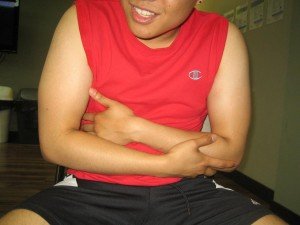Norovirus is the common form of stomach bug which triggers episodes of diarrhea and vomiting. It is also called as the “winter bug” since it is more prevalent during the winter season, but one can acquire it at any time of the year.
The condition can be quite undesirable but generally settles on its own in a few days. Remember that norovirus can rapidly spread to others.
Indications
One is likely to end up with norovirus if he/she experiences the following:
- Projectile vomiting
- Abrupt feeling of being sick
- Watery diarrhea
In some cases, other symptoms might be present such as slight fever, painful abdominal cramps, headache and aching limbs. The symptoms might arise 1-2 days after being infected and usually last for up to 2 or 3 days.

What should I do if I have norovirus?
If the individual experiences abrupt episodes of vomiting and diarrhea, it is recommended to stay home until he/she feels better. Remember that there is no available cure for norovirus and simply allowed to run its course.
Seeking medical care is not needed unless there is a risk for serious issues.
Measures to alleviate the symptoms include the following:
- Increase the intake of fluids to avoid dehydration. Drinking more fluids than normal is required to replace the lost fluids from diarrhea and vomiting. Avoid giving any fruit juices or fizzy beverages to children since they can worsen the diarrhea. Infants must continue to feed as normal either with formula or breast milk.
- Provide paracetamol for any pain or fever
- Adequate rest
- If the individual has the appetite, provide plain foods such as rice, soup, bread and pasta.
- Provide special rehydration beverages if there are any indications of dehydration
- Anti-diarrheal and/or anti-emetic medications can be used but a doctor should be consulted first.
Prevention of norovirus
Remember that it is not always possible to avoid norovirus, but following certain measures can help stop the spread of the virus.
- Avoid school or work until at least 48 hours after the symptoms have settled.
- Frequently and thoroughly wash hands using water and soap, especially after using the toilet and before preparation of food.
- Any objects or surfaces that might be contaminated should be disinfected, preferably with a bleach-based household cleaner.
- Wash any bedding or clothing that might be contaminated separately on hot wash setting to ensure that that virus is killed.
- Avoid sharing any towels
- Avoid any raw, unwashed produce. When it comes to oysters, only eat from a dependable source.
- Flush away any infected vomit or stool in the toilet and clean the surrounding area.
